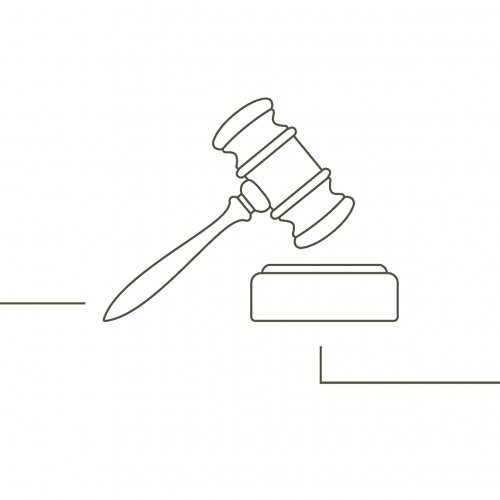Best General Litigation Lawyers in Shah Alam
Share your needs with us, get contacted by law firms.
Free. Takes 2 min.
List of the best lawyers in Shah Alam, Malaysia
About Litigation Law in Shah Alam, Malaysia
Litigation law in Shah Alam, Malaysia, encompasses all the legal processes involved when parties take a dispute to court. This can include civil, criminal, family, and commercial matters. Shah Alam, being the state capital of Selangor, has a well-developed legal infrastructure, including a dedicated High Court and Sessions Court. Litigation in Malaysia follows the common law tradition and is primarily guided by the Civil Law Act 1956, Rules of Court 2012, and other specific statutes depending on the nature of the case. The court system aims to ensure justice is served through an adversarial process where each party presents their case for an impartial judgment.
Why You May Need a Lawyer
Several scenarios might necessitate legal assistance in the field of litigation in Shah Alam:
- You are involved in a contractual dispute with a business partner or client.
- You are facing criminal charges or are a victim seeking redress through the criminal courts.
- Family-related issues, such as divorce or child custody, require formal legal proceedings.
- You are involved in a personal injury case or are pursuing a claim for damages.
- There are disputes concerning property boundaries or ownership.
- You wish to challenge a decision made by a government agency or authority.
- Intellectual property disputes arise, requiring protection of patents or trademarks.
- You are a party to consumer disputes involving defective products or services.
Local Laws Overview
In Shah Alam, specific laws are particularly relevant to litigation:
- Civil Law Act 1956: Governs civil rights and duties, and provides the framework for civil litigation.
- Rules of Court 2012: Establishes procedures for civil proceedings in courts.
- Contracts Act 1950: Regulates contractual relationships and disputes.
- Penal Code: Outlines offenses and punishments for criminal cases.
- Evidence Act 1950: Provides rules on the admissibility of evidence in court.
It's crucial to note that throughout Malaysia, including Shah Alam, the legal system follows a hierarchical structure with the Federal Court at the apex, followed by the Court of Appeal, and then the High Court, Sessions Court, and Magistrates' Courts.
Frequently Asked Questions
What is the typical duration of a litigation process in Shah Alam?
The duration varies significantly based on the complexity and nature of the case, ranging from a few months for straightforward cases to several years for complex disputes.
Can I represent myself in court in Shah Alam?
Yes, you can represent yourself, but it is not advisable due to the complexities of legal procedures and the strategic knowledge required in litigation.
How much do litigation lawyers charge in Shah Alam?
Legal fees can vary widely depending on the lawyer's experience, the case's complexity, and the resources needed. Many lawyers charge on an hourly basis or offer a fixed fee for specific services.
What should I expect during the initial consultation with a litigation lawyer?
During the initial consultation, you can expect to discuss the details of your case and the lawyer will likely provide you with an overview of your legal position, potential strategies, and an estimated cost and timeline.
Are there any alternative dispute resolution options available in Shah Alam?
Yes, alternative dispute resolution options like mediation and arbitration are available, and they can often be a quicker and less costly means of settling disputes.
What are the first steps I should take if I want to pursue litigation?
Gather all necessary documents and evidence related to your case and consult with a qualified lawyer to understand your legal position and options.
Is it possible to appeal a court decision in Shah Alam?
Yes, if you are dissatisfied with a court's decision, you have the right to appeal to a higher court within the specified timeframe.
What should I do if I cannot afford a lawyer?
You can seek assistance from legal aid bodies or non-profit organizations that provide pro bono legal services to individuals in need.
Do I need a lawyer if my case is small?
While not mandatory, having a lawyer can be beneficial even in small cases to navigate legal procedures effectively and increase your chances of a successful outcome.
How is evidence presented in civil litigation in Shah Alam?
Evidence can be presented through documents, witness testimony, expert reports, and cross-examination of witnesses during court proceedings.
Additional Resources
For further assistance, consider consulting the following resources:
- Legal Aid Bureau Malaysia: Provides legal assistance to those who qualify for financial aid.
- Bar Council Malaysia: Offers resources and information on finding practicing lawyers and understanding legal rights.
- Shah Alam Courts: Visit for specific procedural guidance and forms needed for litigation processes.
Next Steps
If you require legal assistance in litigation, consider doing the following:
- Research and make a list of potential lawyers who specialize in your type of legal issue.
- Schedule initial consultations to discuss your case and understand your legal options and costs involved.
- Gather and organize all documents and evidence pertinent to your case.
- Consider alternative dispute resolution options if they might suit your needs.
- Remain proactive and engaged in every stage of your legal process, maintaining open communication with your legal counsel.
Lawzana helps you find the best lawyers and law firms in Shah Alam through a curated and pre-screened list of qualified legal professionals. Our platform offers rankings and detailed profiles of attorneys and law firms, allowing you to compare based on practice areas, including General Litigation, experience, and client feedback.
Each profile includes a description of the firm's areas of practice, client reviews, team members and partners, year of establishment, spoken languages, office locations, contact information, social media presence, and any published articles or resources. Most firms on our platform speak English and are experienced in both local and international legal matters.
Get a quote from top-rated law firms in Shah Alam, Malaysia — quickly, securely, and without unnecessary hassle.
Disclaimer:
The information provided on this page is for general informational purposes only and does not constitute legal advice. While we strive to ensure the accuracy and relevance of the content, legal information may change over time, and interpretations of the law can vary. You should always consult with a qualified legal professional for advice specific to your situation.
We disclaim all liability for actions taken or not taken based on the content of this page. If you believe any information is incorrect or outdated, please contact us, and we will review and update it where appropriate.
















